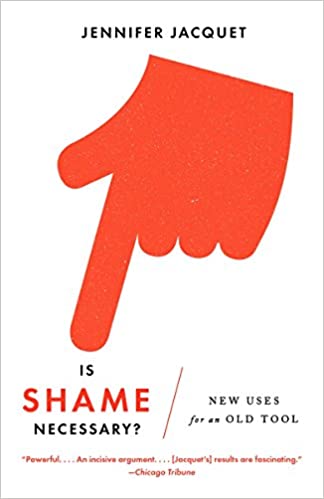 Who said Westerners don’t understand how shame can be harnessed for good? The BBC’s recent article asks the question, “How to go for a walk safely, without getting shamed.”
Who said Westerners don’t understand how shame can be harnessed for good? The BBC’s recent article asks the question, “How to go for a walk safely, without getting shamed.”
Here are a few excerpts:
There’s now a new phenomenon – known as “quarantine shaming” – to try to keep people indoors.
Over the weekend, photos of busy parks, markets and beaches in the US, UK and Canada caused uproar, as officials described people who ignored social distancing guidelines as selfish, arrogant or self-destructive.
On social media, some have been even more critical – the hashtag #COVIDIOTS has been trending, and people have criticised individuals seen at public gatherings, or posted that they “deserve to get the virus”.
In the UK, one man posted an expletive-laden rant as he live streamed people walking on the seafront by his house – in a video that went viral.
Social psychologists say that shaming plays a significant role in enforcing social norms – especially at a time when norms are rapidly changing as a result of coronavirus
Someone might ask, “Does public shaming work?”
Public shaming can be complicated – and controversial.
In recent years, some people who have been subjected to public shaming online have faced what’s been described as digital “mob justice”, even losing their jobs or receiving death threats.
While there haven’t been widespread reports of extreme online shaming over coronavirus, some individuals who have come under fire have said they felt unfairly targeted.
[One Irish pub owner said], “To have people call me and my business out online so viciously – in some cases, to have people screaming at me and the employees of this bar – was incredible.”
However, experts say that shame can also be effective in establishing new social norms – and that the coronavirus outbreak is a particularly good example of where it is needed.
I was pleased to see the article interact with Jennifer Jacquet’s book Is Shame Necessary: New Uses for an Old Tool (which happens to be on sale now for $6.99).
“Shaming should not be used for a problem that does not concern the audience,” says Jennifer Jacquet, an environmental studies professor at New York University.
However, “coronavirus is a problem that affects all of us – a problem with severe and immediate repercussions, where we’re all expected to make sacrifices… it’s a true co-operation dilemma.”
Prof Jacquet, who has written a book about the use of shame in encouraging co-operation, thinks this tactic has been used effectively to discourage people from hoarding supplies or flouting social distancing rules.
She believes shame can even be deployed effectively against institutions – for example, if governments are failing to enforce social distancing rules, or behind on providing coronavirus tests and protecting healthcare workers.
“I hope shame will really shine as a tool that can be used for social good.”
No doubt, there are healthy and unhealthy ways to use public shaming. But I’m glad to see that people are becoming more aware of the potential benefits.
The Ethics of Shaming
No doubt some people will challenge the propriety of using shame. Isn’t it unethical? Stay tuned… in the coming weeks, I’ll introduce an amazing new book that explores Paul’s use of shame for character transformation.
Until then, here are a few noteworthy articles to check out
- The 7 Habits of Highly Effective Shaming (HonorShame.com)
- How to Shame…Biblically (HonorShame.com)
- 3 Features of Moral Shame (JacksonWu.org)
- How Honor Motives Moral Behavior (JacksonWu.org)
While shame is one tool, it is one among others to have in mind during this season of life. For 6 ways to positively impact the world while social distancing, see my earlier article.













